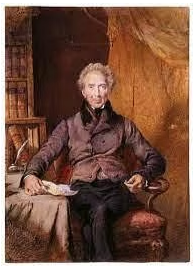Sir John Shore: Architect of Stability in British India (1793-1798) |
Bengal’s Tax Expert: Sir John Shore’s Legacy (1793-1798)
He was in charge of Bengal from 1793 to 1798, and an expert in the Bengal tax system. Shore persuaded his superiors that the best way to ensure British dominance over India during the ensuing 20 years was to settle the land tax in a fair and stable manner. His in-depth familiarity with Bengali customs and traditions as well as revenue systems and institutions led the Court of Directors to select him for the Governor General’s Council in 1787.

|
#PW-OnlyIAS Edge |
|
Significant Events Under Sir John Shore: Reforms, Disagreements, and the Battle of Kharda (1793-1798)
| Events | About |
| Revenue Administration |
|
| Battle of Kharda(1795) |
|
Evaluation Of His Tenure: Strengthening British Presence in India
In his capacity as Governor-General, Sir John Shore shied away from hostilities. Five years of calm followed his term in office. However, his apt leadership has strengthened the British position in India:
- His strategy was to strengthen and effectively run the colonial state without taking needless risks abroad.
- In an era when company officials were frequently dishonest, The Shore is particularly well-known for its unflinching honesty.
Conclusion
The court of directors thanked him “for his distinguished merit and attention in the administration of every branch of the company’s service during the period in which he held the office of governor-general”. He left India in March 1798 and turned the government over to Sir Alured Clarke.
Previous Year Questions
Q1. Under the Permanent Settlement, 1893, the Zamindars were required to issue pattas to the farmers which were not issued by many of the Zamindars. The reason was: (UPSC 2001)
- The Zamindars were trusted by the farmers.
- There was no official check upon the Zamindars.
- It was the responsibility of the British government.
- The farmers were not interested in getting pattas.
FAQs Related To Sir John Shore
Q1. What was Sir John Shore’s perspective on land revenue?
Ans. According to Sir John Shore, the Zamindar should be acknowledged as the land’s owner in order to complete the Land Revenue settlement with them. James Grant suggested that the firm be acknowledged as the land’s legitimate owner.
Q2. How did Sir John Shore operate in his capacity as Governor-General?
Ans. In his capacity as Governor-General, Sir John Shore shied away from hostilities. His strategy was to strengthen and effectively run the colonial state without taking needless risks abroad. Five years of calm followed his term in office. In an era when company officials were frequently dishonest, The Shore is particularly well-known for its unflinching honesty.
Q3. What was Sir John Shore’s non-interference policy?
Ans. The Company, according to the British Parliament, had no jurisdiction to meddle in the internal affairs of India because it was merely a trade organization. In this regard, directives were given.
| Must Read | |
| NCERT Notes For UPSC | UPSC Daily Current Affairs |
| UPSC Blogs | UPSC Daily Editorials |
| Daily Current Affairs Quiz | Daily Main Answer Writing |
| UPSC Mains Previous Year Papers | UPSC Test Series 2024 |

 GS Foundation
GS Foundation Optional Course
Optional Course Combo Courses
Combo Courses Degree Program
Degree Program









